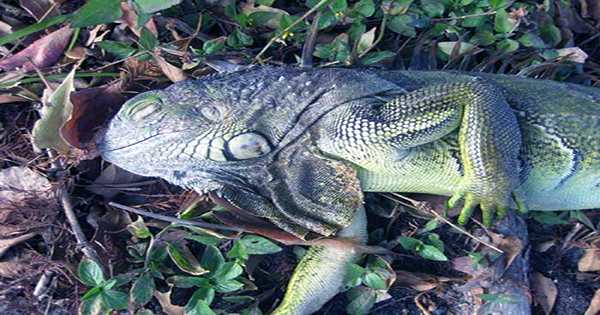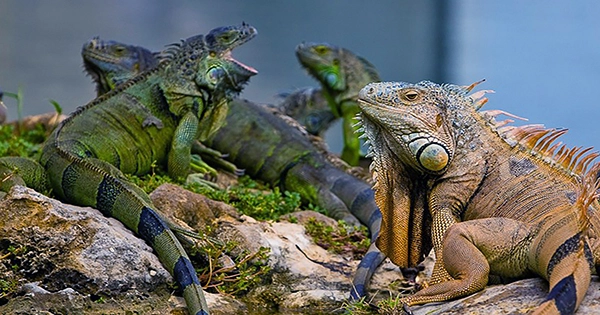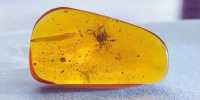Iguanas falling from the sky may seem unreasonable in a place where these animals aren’t native, but “iguana fall” has become a seasonal phenomenon as predictable as snow and rain for residents of Florida. Green iguanas have established themselves as an invasive species in the US state, and while their numbers are growing, they are still vulnerable to temperature variations in their new home. Iguanas, like all cold-blooded reptiles, enjoy warmth, therefore the Florida winter takes its toll on them, causing their blood to stop moving properly around their bodies, making them immobile and leading them to fall from whatever trees they chance to be in.
Sure, it’s bad news for the reptile, but what do you do if your car is plastered in unconscious reptiles? Residents of Florida are becoming accustomed to iguana fall, but not everyone knows what to do with a frozen iguana, as the Florida Fish and Wildlife Conservation Commission (FFWCC) is well aware.

The FFWCC advises against bringing wild green iguanas into your home or car. Yes, spare a word for the numerous mistaken good Samaritans who attempted to assist a chilly iguana by bringing them in their automobile first. The unintended consequence of mixing a sluggish reptile with a confined, warm environment is mayhem. “They can recover quickly in hot weather and defend themselves with their long tails, keen teeth, and claws,” the FFWCC noted. Yikes.
Bringing iguanas into your home comes with the same warning. While you and they may both be cold, you don’t want to let them inside, exactly like mountain lions. Moving the frozen iguana from its landing location is also a poor idea in general because they are invasive species, making it unlawful as well as harmful to native fauna. Now that we’ve checked off what not to do, let’s move on to what we should do: Because of the iguanas’ invasive status in Florida, homeowners are allowed to humanely kill any found on their property; but, if you can’t, it’s advisable to bag them up or place them in a cat carrier and deliver them to a local wildlife center or veterinarian.
Alternatively, you can simply let them to fend for themselves throughout the severe winter months. For animal lovers, euthanizing animals or allowing “nature to take its course” is a difficult pill to swallow, but the cruel reality is that these species have a disastrous impact on local ecosystems. While humans are to blame for their arrival in Florida, iguana fall serves as a periodic reminder that these animals have no place here.
Whatever steps you take, be aware of even the most popsicled iguanas, as they can administer a severe bite or scratch if they aren’t so sound asleep after all. Iguanas are even eaten by some individuals, garnering them the moniker “chicken of the trees.” However, if you decide to take the invasivore route, it’s not a good idea to bring in numerous iguanas at once, as Ron Magill of Zoo Miami demonstrated to NPR in this article.
“This person merely thought to himself, ‘Wow, I’ve got a heap of protein here…’ He’s sort of gathering up all these iguanas that have fallen out of trees and appear to be dead on the road… He then loaded them into his car. “He’s stocking up on them like he’s going to a huge BBQ,” Magill added. “When they got back in the truck, it warmed up, and the iguanas began to come back to life.” And then they all of a sudden got up and started running around in the car, causing an accident.”















